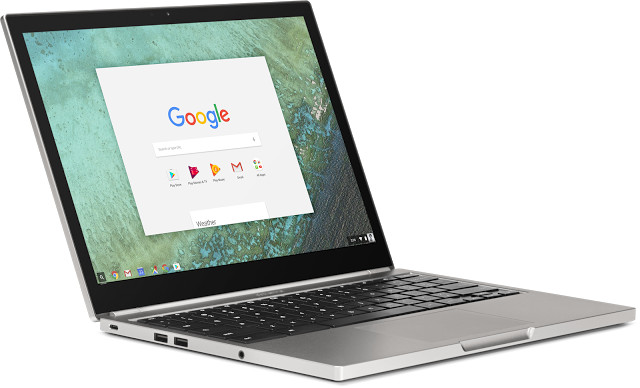There’s been talks about Android and Chrome OS merging for many years, and while it’s unclear whether it will ever happen, both operating systems’ features are converging, with the latest development officially bringing Android apps and the Google Play store to Chromebooks.
 Developers will have very little to modified on their Android apps, except possibly setting touchscreen support, and a few other options in the manifest file. Google listed a few benefits of Android apps on Chromebooks:
Developers will have very little to modified on their Android apps, except possibly setting touchscreen support, and a few other options in the manifest file. Google listed a few benefits of Android apps on Chromebooks:
- Android Apps can be shown in 3 different window sizes
- Users can multi-task with multiple Android apps in moveable windows along with a full desktop browser within Chrome OS interface.
- Keyboard, mouse, and touch input will seamlessly work together
- Users will get Android notifications on their Chromebooks
- Android apps benefit from the Wifi or Bluetooth connectivity setup by the user or the administrator
- File sharing is seamless between Chrome and Android apps through the Files app
- Performance of demanding apps such as games or design apps is excellent
The company will launch the features in stages, starting with Asus Chromebook Flip, Chromebook Pixel (2015) and Acer Chromebook R11 in early June, mostly to let developer time to test their apps, before being enabled on other recent Chromebooks, Chromebases and Chromeboxes later this year.

Jean-Luc started CNX Software in 2010 as a part-time endeavor, before quitting his job as a software engineering manager, and starting to write daily news, and reviews full time later in 2011.
Support CNX Software! Donate via cryptocurrencies, become a Patron on Patreon, or purchase goods on Amazon or Aliexpress




